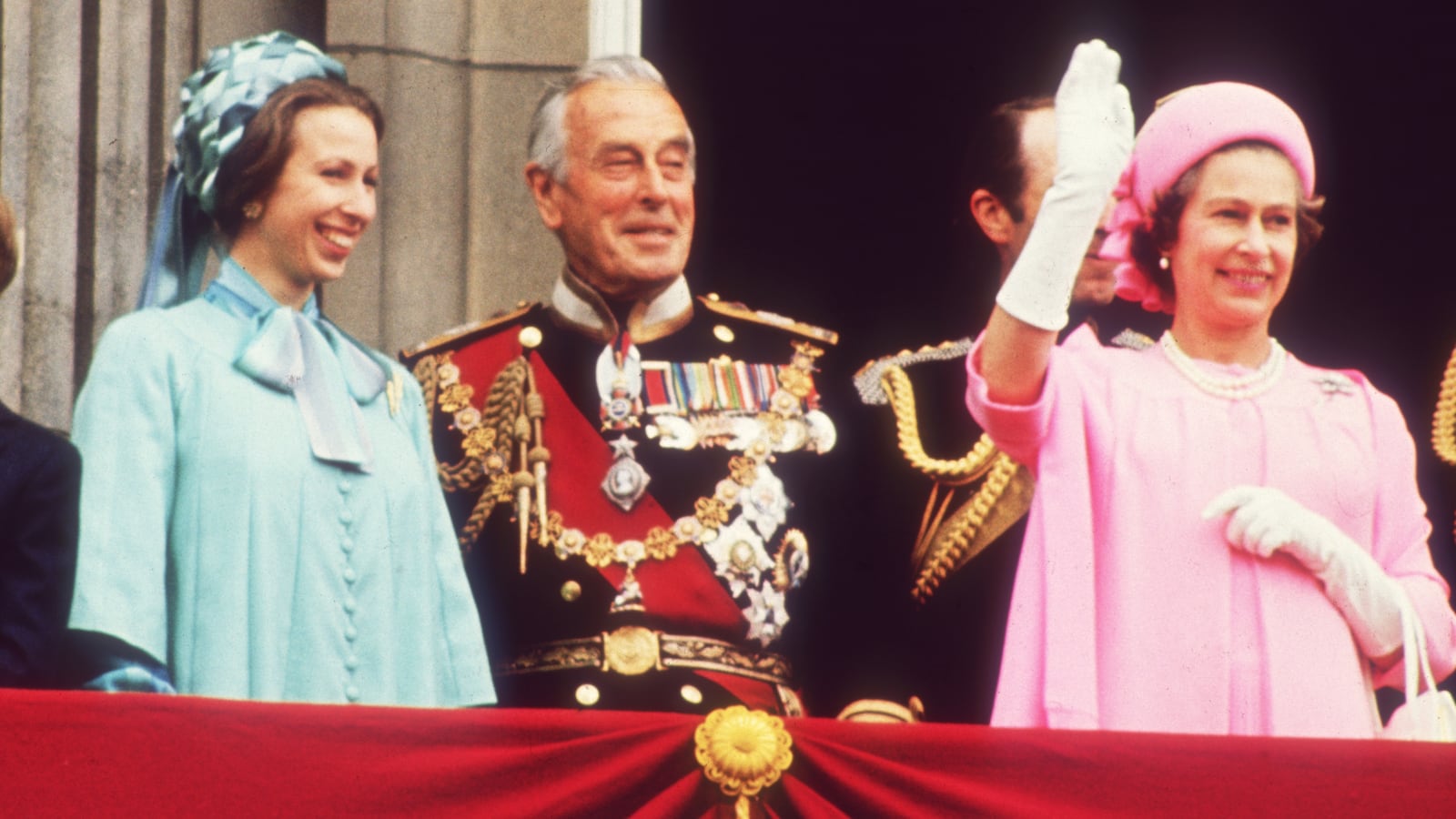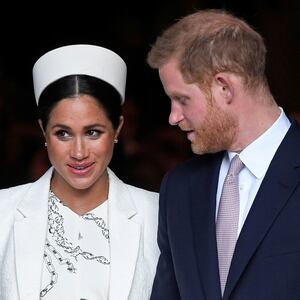LONDON—On Aug. 21, 1979, Lord Louis Mountbatten, second cousin of Queen Elizabeth, was assassinated by the Irish Republican Army. Mountbatten was the highest-ranking victim of the IRA during what was known as The Troubles and his death caused widespread outrage: a radio-controlled bomb blew him up as he left on a small boat for a tuna fishing trip from the small Northern Irish harbor of Mullaghmore, also killing two of his grandchildren.
At the time the IRA defended its action by painting Mountbatten as a symbol of a whole generation of British imperialism. They said the assassination was “one of the discriminate ways we can bring to the attention of the English people the continuing occupation of our country.”
Gerry Adams, vice-president of Sinn Féin (maintaining the party’s technical distinction of not being an official part of the IRA), was blunter: “What the IRA did to him is what Mountbatten had been doing all his life to other people.” That was a highly contestable view. For sure, as the last viceroy of British India and first governor-general of an independent India Mountbatten had enjoyed the final vestiges of British imperial power, but he was far from being a despot.

Admiral Of The Fleet Earl Mountbatten Of Burma, Admiral Lord Louis Mountbatten sitting at his desk (close-up, looking up), circa 1943.
British Official Photographer/ IWM via Getty ImagesWhat the IRA probably didn’t realize at the time was that the death of Mountbatten ended a long-running rivalry for influence at the heart of the royal family—a rivalry for control of the way that males in the family were to be raised. This is salient now because of its bearing on the Windsors’ previously poor record of parenting.
Harry and Meghan, along with Will and Kate, are putting as much distance between their parenting and that of the Queen and Prince Philip as can be achieved without actually causing offense by making it explicit.
Of course, parenting in the royal family can never be normal. But Mountbatten always had something more in mind than how royal children should be raised, and specifically the male heirs. In his view to be up to the job they had to be alpha males with Teutonic self-discipline. His influence began with Philip long before Philip and the future Queen Elizabeth ever met (he had a hand in arranging that meeting, too).

UNITED KINGDOM - JANUARY 01: Great Britain, Full Portrait Of Queen Elizabeth Ii And Prince Philip
Keystone-France/Gamma-Keystone via Getty ImagesPhilip was born in Greece but spent his early life in France and Germany, where in the 1930s his father was cozying up to the Nazis. He was sent to England for his education where he was virtually adopted by Mountbatten’s brother, the Marquess of Milford Haven, and his wife. They paid for his schooling and he bonded with their own son, David.
Both were sent to the oldest public (meaning elite private) school in the country, Cheam, where they became known as the Mountbatten boys. They were also left free to roam the large Milford Haven estate without knowing a family secret: in a locked library the Marquess kept one of the largest private collections of Victorian pornography.
This was in keeping with the whole Mountbatten milieu at the time. Louis himself emerged socially in a between-wars world of playboy princes, rakish aristocrats and plutocrats who spent their summers in Mediterranean resorts where men treated women as trophies to be pursued, claimed and discarded. Or, in the most notorious case of them all, the game was reversed and an American married woman named Wallis Simpson landed a catch in England’s Prince Edward, the future Edward VIII who abdicated the throne in order to marry her. Mountbatten was present in 1931 when Wallis met Edward.
The Great War had wiped out one European royal house, the Romanovs, and scattered the remnants of others. Decadence was inevitable, and Mountbatten, acting in deliberate counterpoint to the habits of his own louche crowd, directed his brother that after Cheam Philip should go north to complete his education at a spartan academy in Scotland named Gordonstoun. The routine there gave more stress to physical obduracy than intellectual attainments. Long runs in all weathers combined with cold showers to make a Mountbatten-type man.
And it was this path—Cheam followed by Gordonstoun—that Philip, encouraged by the ever-present Mountbatten, inflicted on his own son, Prince Charles, who, in a desperate letter home, wrote: “The people in my dormitory are foul. Goodness they are horrid. I don’t know how anybody could be so foul.” Later Charles summed up the place as “Colditz [the infamous German castle used to incarcerate prisoners of war] in kilts.”
By the time of Charles’s childhood Mountbatten’s influence at the palace had suffered one serious setback. After Elizabeth’s accession he had wanted to reinforce Philip as the Mountbatten surrogate by having the family name changed from Windsor to Mountbatten but this was rebuffed.

Princess Elizabeth (later Queen Elizabeth II of Great Britain) with her husband Prince Philip, Duke of Edinburgh and their baby son Prince Charles, July 1949.
Fox Photos/Hulton Archive/Getty ImagesPhilip complained of being “an amoeba attached to the great rock of the monarchy” and that he was treated as being British “only by adoption.”
Mountbatten’s dynastic ambitions had collided with a quiet but immoveable force, the Queen’s mother. The elder Elizabeth was as deeply grounded in a British bloodline as the Mountbattens were in the German and Greek royal lines.
When she married the Queen’s father, George VI, Lady Elizabeth Bowes-Lyon was the ninth child and fourth daughter of Lord Glamis, a Scottish laird. Her mother was descended from a British prime minister, a governor-general of British India, and the legendary vanquisher of Napoleon, the Duke of Wellington.
First as George VI’s steadfast wife during the war when she pointedly appeared with the king in blitzed streets to demonstrate a new affinity with the people of London, and then as a mother grooming her daughter to be queen, this Elizabeth was adamant that a German name should not attach to the British monarchy.
However, the Queen Mother may have won the war but she lost a consequential battle. She saw Charles’s distress in his letters from Gordonstoun and suggested to the Queen that perhaps the ordeal should be aborted, but the Queen left that decision to Philip and he was unrelenting.
The result was not only great dramatic fodder for the last series of the Netflix royal saga, The Crown, where Charles’s misery was made manifest, but led to a public perception that has never really abated—that the Queen was a distant mother who believed in a royal tradition that fathers, not mothers, should shape men’s lives. But the irony is that Charles, a prickly and complex figure, never became a Mountbatten while, at the same time, he serves as a warning to the new generation of Windsors that father does not always know best.
Three of the Queen’s four children had marriages that ended in divorce, a failure rate suggesting that Windsor family values were uncommonly flawed.
Mountbatten—“Uncle Dickie” to the Windsor children—had a formidable wartime record as a much decorated naval commander, military head of Allied forces in India and Asia, the man the Japanese surrendered to in Singapore and, less gloriously, the Viceroy to India whose frequently absent wife Edwina became the lover of the Indian rebel hero Pandit Nehru.

Lord Louis Mountbatten with his wife Edwina at Buckingham Palace for an investiture ceremony. February 1943.
Daily Mirror/Mirrorpix/Mirrorpix via Getty ImagesHis wartime achievements enabled him to become an astute political networker and power broker able to go beyond the boundaries of involvement in public life normally observed by the royal family. He was particularly skillful in sustaining the importance —or self-importance—of his role with newspaper editors.
This landed him in a trap that ended in rare public embarrassment and has never really been fully explored or explained.
In 1968 the best-selling British tabloid of the time, the Daily Mirror, usually a rock-solid supporter of the Labour Party, became disenchanted with the performance of Harold Wilson, the Labour prime minister. The paper’s proprietor, a lofty patrician named Cecil Harmsworth King, decided that the Wilson government was leading the nation to bankruptcy and, in a rare abrogation of editorial independence, took over the paper’s front page to write a polemic with the headline “Enough is Enough!” and called for Wilson to be deposed by his own party.
In secret King went a good deal further, planning a coup in which the armed forces would take over the country—with Mountbatten as their commander.
It was an insane idea, but Mountbatten made the mistake of turning up at King’s home—at the instigation of the Mirror’s editor. Other shady figures in the nation’s unofficial political establishment turned up for what had all the makings of an insurrectionist cabal. Mountbatten sat it out as King explained his plan and emphasized that for it to work Mountbatten’s prestige would be essential.
It was left to another participant to declare that they were discussing treason and at that point Mountbatten withdrew. When details of the plot leaked out King was removed by the newspaper’s shareholders and Mountbatten said he had never seriously entertained the idea of being the man who would lead troops into Downing Street and remove a prime minister.

The Prince of Wales and Lord Mountbatten, wearing full naval uniform, visited Nepal in 1975 to attend the coronation of King Birendra.
Anwar Hussein/WireImageMountbatten enjoyed the years left to him as someone who best operated out of the limelight, still playing mentor to Charles even though he had been tormentor, too, by inflicting Gordonstoun on him. Mountbatten advised Charles to enjoy his wild oats while he could while a suitable “innocent” young woman could be found for him as a bride.
The result of that advice came in 1981, two years after Mountbatten was assassinated, when Charles, 33, announced his engagement to Lady Diana Spencer, 20. Asked if he was in love, Charles replied, “Of course… whatever ‘in love’ means.”
They were words that “Uncle Dickie” might well have thought but he was too wise to utter them in public. The outcome of that mindset and marriage was doomed, but at least Diana finally broke the Windsor model of parenting with the results that are now being celebrated.







